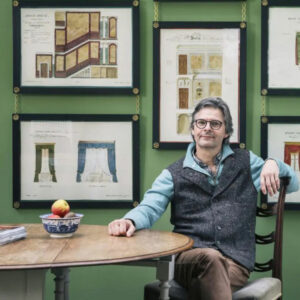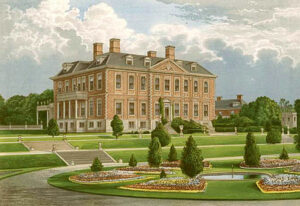Edward Bulmer Chooses His Favourite Book and Piece of Music
Guest Contributor
Edward Bulmer
This is a new format for our monthly Nature Notes, each month we will be asking a guest to make a contribution to our periodic newsletters. Edward Bulmer of the eponymous Natural Paint Company has chosen his favourite book and piece of music. As a passionate eco-warrior and farmer, as well as a renowned interior designer, architectural historian , ‘colourman’ and also a loyal customer, he is the perfect candidate to launch this new initiative

Atropa belladonna
Deadly Nightshade
I cannot read the words without hearing them enunciated in Leo’s pre-pubsecent voice, accompanied by the haunting notes of Michel Legrand’s piano score in Joseph Losey’s infecting film The Go Between.
The film was my introduction to L.P.Hartley’s novel, adapted by Harold Pinter for Losey’s production and first published in 1953. Even then I did not pick up the book until after I had visited the locations in which his film was set.
Studying History of Art as a student at the University of East Anglia, I set out with a friend to visit Haydon village, site of the Sunday service and estate cricket match, but travelling to Melton Constable Hall, its sheer beauty literally took my breath away, and I had to read the novel

‘The past is a foreign country, they do things differently there’
Legrand turns the keyboard into a sort of pacemaker, sometimes sounding out the ache of Leo’s and Marion’s melancholia years later, sometimes the running heartbeat of Leo’s illicit journeys to take notes to Ted Bates and sometimes the dramatic backdrop to Leo and his friend’s exploration of home farm, already overgrown with deadly nightshade, with their farmhands gone to the Great War

The novel inspired a great film, that somehow elevated the novel in return, and this I attribute to Losey’s brilliant cinematography and the intensely evocative and arresting score. It has travelled with me through life, reading it with my eldest daughter, as her set book at school, and revisiting Melton Constable whenever I go to Norfolk. The music has become indivisible from the image, the written word and even the experience of the house itself

The house is now a ghost, almost as if it is actually being scripted by L.P.Hartley. Its beautiful facades are subsiding like Marion’s beauty and the way of life that supported it has now quite gone, but it needn’t vanish completely and one day it may enjoy a renaissance, just as Ted and Marion’s union bore new life in the form of a son to outlive them and the constricting codes of their time